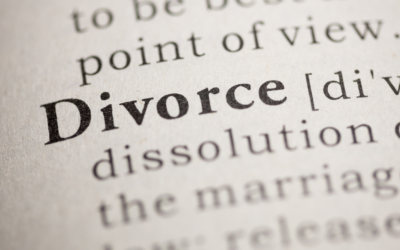Savvy Money Blog
I want to learn about…
Learn from our Experts.
Get $avvy financial tips. Read an article today!
Holiday Spending Guide: How to Stay Savvy, Joyful and Financially Confident This Season
Adapted from the following original Savvy Ladies articles: “3 Places to Save Money Around the Holidays”, “Suze Orman on Limiting Holiday Spending Damage” by Stacy Francis, CFP®, CDFA, "Top Tips for Saving on Holiday Airfare" by Stacy Francis, CFP®, CDFA, and “On the...
Rebuilding Your Finances After the Government Shutdown
Editor's Note: The recent government shutdown may have ended, but many women and families are still feeling its financial ripple effects. Whether you experienced furloughs, missed paychecks, or are navigating your own form of economic uncertainty or job loss, the...
Learn if a Debt Management Plan is Right for You
Looking for a trustworthy way to take control of your debt? Our partners at the National Foundation for Credit Counseling can help you get the debt management guidance you deserve. Getting out of debt requires a plan. Here, you’ll learn what a Debt Management...
How Women Really Feel About Talking Money: Insights from the Savvy Ladies Community
Breaking the silence around money and equipping women with the tools to have open, honest financial conversations are at the core of the Savvy Ladies mission. That’s why this summer, we asked our community how they really feel about money conversations. Through a...
Savvy Spending Tips: Your Guide to Smart Shopping
Smart spending isn’t just about cutting costs. It’s about making your money reflect your values. Every dollar you spend shapes your financial future. To shift your mindset, start by zooming out and looking at the big picture: define your money values, create a budget...
7 Important Financial Questions: Financial Concerns Young Hispanic Women Are Asking Our Helpline
Young Hispanic Women care about money. They are seeking answers to important budgeting questions and reaching out to the Savvy Ladies Free Financial Helpline to get answers As a Hispanic woman living in the U.S., you want to build financial security, support your...
How Are Your Taxes Calculated? Tax Brackets, Explained
By Kelly Phillips Erb Do these tax questions sound familiar? Submit your question to the Savvy Ladies Free Financial Helpline and get connected to a Savvy Ladies Volunteer. Submit your question Questions women are asking: How do I budget to pay my taxes and not be in...
How Hispanic and Latina Women Navigate Cultural Barriers to Build Generational Wealth
Family is the driving force for many Hispanic and Latina women in their generational wealth-building era. They want to invest in their children's and grandchildren’s futures to provide them with financial stability and better educational opportunities. But, getting...
Going Solo: How to Plan for Retirement When You’re on Your Own
By Diane Harris Sept. 21, 2024 A version of this article appears in print on Sept. 22, 2024, Business Section, Page 4 of the New York edition with the headline: "How to Plan for a Time When You Are on Your Own". Click here to view the original NYT Business Article...
Take Control of Your Finances With The Best 7 Budgeting Apps
by Cynthia Ibarra* In a digital era, budgeting apps are powerful financial tools, especially among women wanting to take control of their financial futures. They save time by automatically tracking your spending, motivating you with customizable financial goals, and...
Credit Card Finance Charge Calculator
Understand Your Credit Card Monthly Payment Understanding Your Credit Cards What is credit? Credit is the immediate use of products, services, or money in exchange for the promise to pay in the future. We can access credit using credit cards, charge cards, retail...
Top 8 Divorce & Money Questions Asked on the Helpline
Giving women quality financial guidance for women, during and after divorce. Savvy Ladies Helpline Volunteer Donna Cates CDFA®, CRPC® shares her insights on some of the most frequently asked divorce & money questions we get on the Savvy Ladies Helpline. Q: I am so...
Divorce mistakes to avoid to achieve financial well-being for women and their children
Learn the top financial mistakes women need to avoid when going through a divorce Savvy Ladies Helpline Volunteers share their answers to some of the divorce financial questions they receive from women who are seeking answers on how to proceed and plan for a divorce...
The Cost of Divorce: Expert Tips for Planning and Paying for Your Separation
The Cost of Divorce: Expert Tips for Planning and Paying for Your Separation By: Lisa Zeiderman Divorce doesn’t only bring emotional distress. It also brings financial implications that could drastically affect an individual’s life. Among those are how much their...
Home Sharing to Cut Housing Costs
By Marge Schiller, CFP® Is your cost of housing too large a portion of your income today? Are you having trouble finding an affordable rental in your community? Or is your current home more space than you really need but you like it? If your answer is “Yes” to any of...
Savvy Ladies Celebrates 20 Years of Financial Empowerment at the Nasdaq MarketSite
On Monday, April 3, 2023, Savvy Ladies kicked off Financial Literacy Month with the first-ever Building Connection Breakfast, an event celebrating the 20th anniversary of the organization. The breakfast, hosted at the Nasdaq MarketSite–an iconic Times Square...
Tax Returns: Who Needs To File?
By Kelly Erb When talk turns to taxes, it feels like everyone is filing a tax return—but do you need to? Here's what to know about your tax filing obligations. Who Needs to File Tax Returns? For most taxpayers, you can figure out whether you must file by checking the...
Major Changes Brought by the Secure Act 2.0 and How it will Affect Your Retirement Savings
By Jonathan Bird, CFP® The SECURE 2.0 Act is here to make a difference in the US retirement system, bringing forth a range of modifications to strengthen the retirement system and enhance financial preparedness for all Americans. SECURE 2.0 became law on December 29,...
Top Financial Questions from Black and African American Women, Answered
Jennifer Jonassaint, a Savvy Ladies Helpline Volunteer answers women’s financial questions submitted to the Free Financial Helpline In 2022, Black women earned 70% as much as White men, compared to a ratio of 83% for White women. The combination of racial wealth...
Tax Advice for New Businesses
Are you planning to become a small business owner this year? Tax advisor Alicyn McLeod, CPA, CFP® and tax attorney Matthew E. Foreman share all you need to know about taxes. Originally live-streamed on February 21, 2023.
Financial Abuse Is on the Rise: What It Is and What to Do About It
By Stacy Francis, CFP®, CDFA®, CES™ While financial abuse affects both men and women, women are more frequently the victims. According to the Bureau of Justice Statistics, 85% of domestic violence victims are women, and unfortunately, the number of incidents is...





















